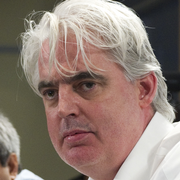
South African newspapers endlessly lament the travails of the poor. But the burdens under which productive members of society labour merits few column inches. Take the present clamour for self-defeating tax increases. Beyond the moral truism that citizens are entitled to the fruits of their own labour, tax rises deter investment, slow growth and so reduce overall tax receipts.
Although the poor should be incentivised to search for work, the government refuses to dismantle debilitating welfare systems — and it is the rich who have to pay for them. Those who have entrepreneurial drive are meanwhile criticised for using incentives to make themselves work harder.
Businessmen on remuneration committees have even been condemned for rewarding the engineers of growth: themselves. Black businesspeople shoulder even more onerous duties. They are obliged to become rich in the national interest in order to create a "patriotic bourgeoisie".
In the public sector, the powerful face similar challenges. Higher Education Minister Blade Nzimande has been forced to relinquish his proletarian lifestyle and to accept the unwelcome trappings of state office. One former trade union leader, Zwelinzima Vavi, this week blamed Nzimande for his ministerial predicament. Before his recent retirement, however, Vavi was himself the beneficiary of generous trade union remuneration policies.
In the past, the academic community has remained above, or perhaps below, the neoliberal system (albeit not altogether voluntarily). Members of Wits University’s so-called "Parkview proletariat", for example, have for decades generated knowledge of incalculable value before retiring to humble dwellings at the end of the working day, or indeed earlier. Wits’s new vice-chancellor, Adam Habib, exemplifies such selflessness and argues that "empathy for the poor should be part of our humanity" — a remark that recalls former US president George Bush’s observation that he "knows how hard it is for you to put food on your family".
Today, however, the obligation to allocate scarce skills in the interests of the nation has forced senior academics in "formerly Afrikaans" universities to create large consulting companies to deliver services to the state.
In the formerly liberal universities, at least, "academic freedom" still reigns supreme. English-speaking scholars, unlike their Afrikaner counterparts, refuse to bow down to public authority or to act voluntarily as instruments of the state: they have to be paid to do this. Despite these underlying differences in philosophy, therefore, the outcome is much the same: some academics are compelled in the national interest to accept additional remuneration that they do not want.
Now Habib has become embroiled in a controversy about proposed renovations to his official residence, Savernake. This Randlord’s palace, owned by the Price Family Trust, has been made available to Wits on the understanding that the university will maintain it. The agreement stipulates that the mansion will revert to the trust if the vice-chancellor does not reside there. "This," Habib has explained, "is why Wits has insisted in my case, and all others before me, that the vice-chancellor lives in the residence."
Inconveniently, the mansion is a "heritage house" (the cultural equivalent of a National Key Point) and it therefore cannot be equipped with Wits office furniture and blue carpet tiles by the university maintenance department. Just as the government has paid for "security upgrades" at Nkandla, so Wits must now pay more than R10m to renovate Savernake, and all this to imprison the unfortunate vice-chancellor in a vulgar bourgeois environment that he abhors.
Taxes. Virtual imprisonment. Victimisation of the rich and powerful. When will it all end? The fad of democracy has made it all but impossible for the rich to speak out. As former US vice-president Dan Quayle once observed of his own right-thinking but increasingly unpopular party: "Republicans have been accused of abandoning the poor. It’s the other way around. They never vote for us."
Written by: Anthony Butler
Picture credit: Business Day
- Butler teaches politics at the University of Cape Town. This article was published on Business Day.
